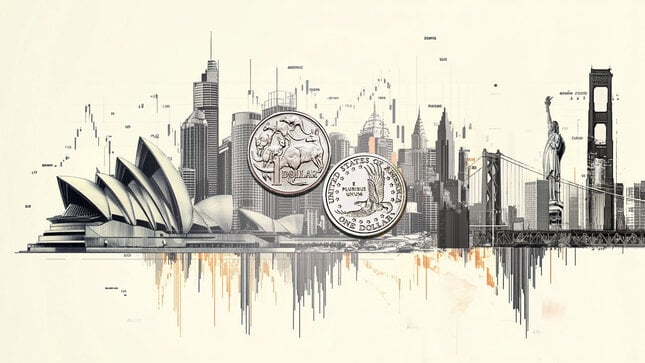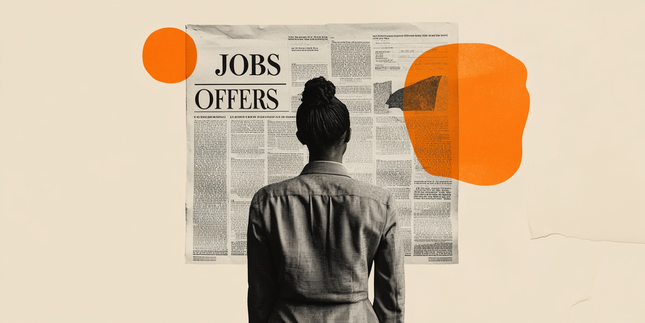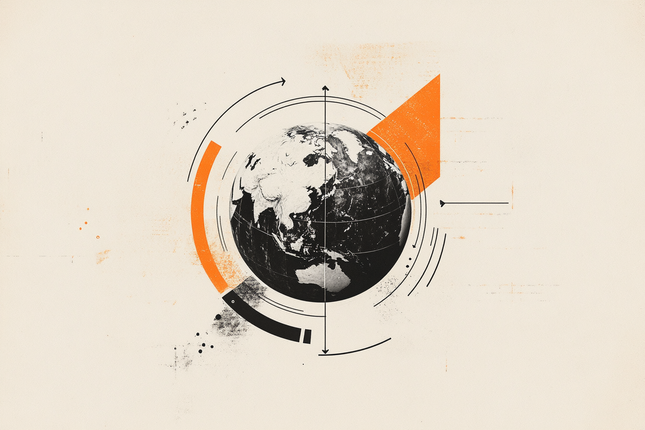COVID-19 is having a major impact on world economies and the changes in consumer behavior leads to a rise in credit card fraud.
This article was prepared by MyChargeBack, leaders in complex dispute resolution and fund recovery services. In this article, we will discuss the effects COVID-19 has had on the global economy and discover the link between the pandemic and the rise in credit card fraud.
As we approach the final quarter of what many may describe as the toughest socio-economic year in recent times, economists and financial pundits are scrambling to predict what the final economic impact of the COVID-19 pandemic will be.
Although it is difficult to assess, one thing is certain: The economic damage incurred so far will continue to have a negative effect on the global economy for years to come.
In the beginning stages, before the virus was declared a pandemic by the World Health Organization, early estimates predicted that major economies would lose at least 2.4 percent of their gross domestic product in 2020. The estimated loss resulted in economists to further reduce their 2020 projections of global economic growth down from approximately 3.0 percent to 2.4 percent. To further illustrate the gravity of the situation, take the 2019 global GDP figures as an example. They were estimated at around $86.6 trillion, which would mean a 0.4 percent decrease in economic growth would result in a loss in global economic output of around 3.5 trillion U.S dollars.
Keep in mind that these projections were made before COVID-19 was considered a global pandemic. Since then, the enforcement of economic lockdowns and social distancing has created further economic pressure on world economies and major losses in global stock markets.
A major factor driving the economic decline is the reduced demand for goods and services and the dramatic changes in consumer spending. This is observed in two industries that were hit the hardest by the pandemic: Travel and tourism.
Restrictions placed on travel to reduce the spread of the virus have greatly reduced consumer demand, generating major losses in the global airline industry. This is felt even more so with countries that rely on annual tourism, in addition to cities that are major travel hubs, such as Amsterdam, Frankfurt and Paris.
As witnessed, other sectors have also felt the effects of the pandemic. The implementation of lockdowns and social distancing has resulted in a dramatic reduction in daily commuting and social activity, not just international travel. This has had a direct impact on demand for gasoline and, hence, crude oil, as well as purchases of new automobiles. The United States, Russia, Saudi Arabia, Iraq, Nigeria, and Angola, and virtually every one of the world’s other major oil producers, have taken a massive hit as a result of the pandemic.
The pandemic is also severely impacting consumer spending behavior on a global level. Businesses and corporations dealing with staff reductions and the rise in unemployment are forcing end-consumers to change their spending habits to compensate for a decrease in income. Australia, Canada, India, Italy, Japan, Mexico, New Zealand, South Africa, and Spain are a few of the nations that have seen the biggest change in consumer spending.
Covid-19 and its Impact on the Consumption of Goods and Services
The shift in consumer attitudes, behaviors and purchasing habits are expected to endure long after the pandemic and will permanently transform the future of the goods and services industry.
While it’s difficult at this stage to predict the full impact the pandemic might have on the future of the world economy, changing trends give us a glimpse into what the new global economic reality might look like.
Demand for Essential Goods and Services
With the unpredictable situation and the inability to forecast the future of the economy, consumer spending has shifted its focus to short-term, essential requirements. Research has indicated that in times of crisis, consumers direct their purchases towards lower priced goods and services. A recent study suggests that 25% of consumers in the U.S. are now spending an additional 133% on food spending, while luxury and premium product purchases have declined.
Increased Spending on Leisure Activities
A shift in how people spend their free time and the leisure activities they participate in has been impacted by Covid-19. Consumer spending has shifted rapidly towards home maintenance projects, education and entertainment which have all seen an increase over this period. In addition, one study conducted in April suggests that spending more time catching up on the news and world events and time spent with family are high up on peoples’ lists.
Focus on Health-Related Products
One of the many lessons the pandemic has taught us is the need to take better care of our health and wellbeing. This is reflected in increased expenditure on healthy food alternatives, medicines and other health related products.
Conscious Shopping and Staying Local
Consumers are now more mindful of their purchasing habits and the need to limit unnecessary spending. Limiting general waste, incorporating a more sustainable way of living and selecting more socially conscious brands is a trend that consumers are beginning to focus on. Accounting firm EY suggests that approximately one third of consumers are now willing to purchase locally, with 25% favoring trust brands and 23% focusing on ethical brands.
Saving as an Alternative to Spending
As a result of the pandemic and uncertainty in the markets, a major concern for consumers is putting money away for future savings. A large percentage of citizens in the G7 nations; Canada, Germany, France, Italy, Japan, the United Kingdom and the United States state that personal income has been or will be affected by the pandemic and that a savings plan is high up on their to do list.
Rise in the Ecommerce and Online Banking
Social distancing and lockdowns have forced consumers to gravitate towards ecommerce and banking online. A few short months after the pandemic hit, the switch to online shopping increased significantly across many sectors, particularly with respect to groceries, medicine and home entertainment. Online banking has also experienced increased activity as a result of the changing environment. And it seems the shift may become a permanent trend after the pandemic as consumers become more familiar and secure with transacting online.
Increased Credit Card Transactions Lead to Rise in Online Scams and Credit Card Fraud
The increase in ecommerce and online credit card transactions comes at a price. It has created new opportunities for credit card fraud and identity theft. The U.S. Federal Trade Commission has warned consumers regarding increases in phishing scams which are the gateway to financial fraud and identity theft.
The shift to the digital space also gives rise to an increase in forex scams. With the huge potential for profits in the global market, forex trading scams are robbing unsuspecting victims of millions of dollars each year. To make matters worse, those that discover that they have been involved in a scam have few options as bank dispute departments are short staffed and inundated with chargeback requests.
Conclusion
Despite the doomsday predictions and the predicament the global economy faces, there are grounds for optimism. Global leaders have learned from past crises and are working closely with scientists and doctors to find a speedy resolution to the pandemic. With careful government decision making, diligent planning, confidence in the markets and cooperation from citizens, it is possible for the global economy to experience a sharp rebound once the pandemic is over.
MyChargeBack is an American fund recovery firm with a global reach. Working with over 800 banks, we have assisted clients on every continent recover millions of dollars in assets that they thought they lost for good.
MyChargeBack provides free consultations. Chargeback and other fund recovery programs contracted thereafter are subject to retainers, fees and/or commissions depending on the individual case history and the type of service selected. MyChargeBack does not offer any financial investments or advice.
Editors’ Picks

AUD/USD stays defensive below 0.6700 amid Venezuela turmoil
AUD/USD is on the defensive below 0.6700 in the Asian session on Monday as investors remain risk-averse following the geopolitical fallout between the US and Venezuela over the weekend. Markets look forward to the new year, with weak China's RatingDog Services PMI data adding to the caution.

Gold jumps over 1.5% to near $4,400 on US-Venezuela tensions
Gold holds sizeable gains near $4,400 in the Asian trading hours on Monday. The traditional safe-haven metal capitalizes on escalating geopolitical risks after the United States' capture of Venezuelan President Nicolas Maduro. Traders will closely monitor developments surrounding the US seizure of Maduro and await the US ISM Manufacturing Purchasing Managers' Index data later on Monday.

USD/JPY holds uptick near 157.00 on rising geopolitical tensions
USD/JPY holds its latest uptick near 157.00 in Asian on Monday. The pair gains ground as the US Dollar finds fresh haven demand in the face of the weekend's United States' capture of Venezuela, which keeps investors on edge and fuels a flight to safety across the board.

Powerful guide to ISM, building permits, NFP and Silver technicals
Next week is important for U.S. markets. We get key economic data that can move stocks, bonds, and the dollar. The main reports are ISM Manufacturing, ISM Services, Building Permits, and Non-Farm Payrolls. Traders will watch these closely.

Economic outlook 2026-2027 in advanced countries: Solidity test
After a year marked by global economic resilience and ending on a note of optimism, 2026 looks promising and could be a year of solid economic performance. In our baseline scenario, we expect most of the supportive factors at work in 2025 to continue to play a role in 2026.
RECOMMENDED LESSONS
Making money in forex is easy if you know how the bankers trade!
I’m often mystified in my educational forex articles why so many traders struggle to make consistent money out of forex trading. The answer has more to do with what they don’t know than what they do know. After working in investment banks for 20 years many of which were as a Chief trader its second knowledge how to extract cash out of the market.
5 Forex News Events You Need To Know
In the fast moving world of currency markets where huge moves can seemingly come from nowhere, it is extremely important for new traders to learn about the various economic indicators and forex news events and releases that shape the markets. Indeed, quickly getting a handle on which data to look out for, what it means, and how to trade it can see new traders quickly become far more profitable and sets up the road to long term success.
Top 10 Chart Patterns Every Trader Should Know
Chart patterns are one of the most effective trading tools for a trader. They are pure price-action, and form on the basis of underlying buying and selling pressure. Chart patterns have a proven track-record, and traders use them to identify continuation or reversal signals, to open positions and identify price targets.
7 Ways to Avoid Forex Scams
The forex industry is recently seeing more and more scams. Here are 7 ways to avoid losing your money in such scams: Forex scams are becoming frequent. Michael Greenberg reports on luxurious expenses, including a submarine bought from the money taken from forex traders. Here’s another report of a forex fraud. So, how can we avoid falling in such forex scams?
What Are the 10 Fatal Mistakes Traders Make
Trading is exciting. Trading is hard. Trading is extremely hard. Some say that it takes more than 10,000 hours to master. Others believe that trading is the way to quick riches. They might be both wrong. What is important to know that no matter how experienced you are, mistakes will be part of the trading process.
The challenge: Timing the market and trader psychology
Successful trading often comes down to timing – entering and exiting trades at the right moments. Yet timing the market is notoriously difficult, largely because human psychology can derail even the best plans. Two powerful emotions in particular – fear and greed – tend to drive trading decisions off course.

